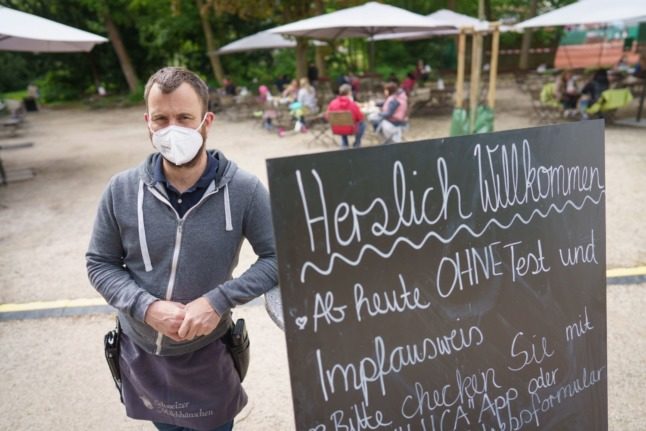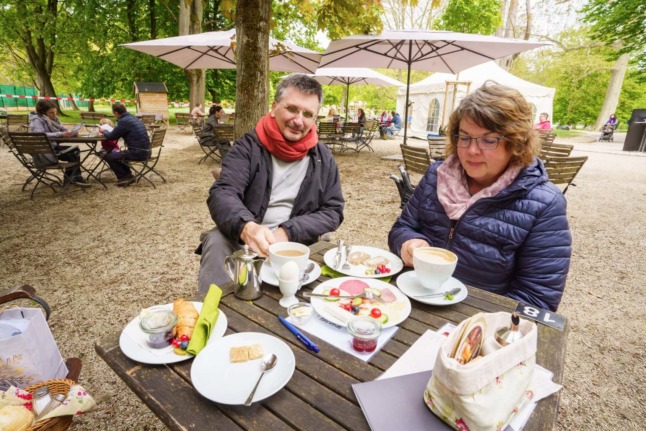!function(e,i,n,s){var t=”InfogramEmbeds”,d=e.getElementsByTagName(“script”)[0];if(window[t]&&window[t].initialized)window[t].process&&window[t].process();else if(!e.getElementById(n)){var o=e.createElement(“script”);o.async=1,o.id=n,o.src=”https://e.infogram.com/js/dist/embed-loader-min.js”,d.parentNode.insertBefore(o,d)}}(document,0,”infogram-async”);
RESTAURANTS
Danish government calls for shops, cafés and restaurants to reopen
Denmark's government has proposed opening restaurants, shops and cafés, and opening schools for elder pupils in the next stage of its the country's gradual reopening of society.
Published: 6 May 2020 19:39 CEST

Danish PM Mette Frederiksen (right) Søren Pape Poulsen (centre right) Pia Olsen Dyhr (centre left) and Pernille Skipper (far left) prepare for talks in Denmark's parliament. Photo: Philip Davali/Ritz
In a statement ahead of negotiations over the reopening between Denmark's political parties, the country's prime minister Mette Frederiksen said that her party, like all the others, was only ready to open up to the extent that was safe.
“All the parties, of course, want to open everything – no one has an interest in keeping any part of Denmark closed for one day longer than is absolutely necessary,” she said. “But everyone also agrees that we must do what is defensible from a health point of view.”
She said the government's proposal had been drawn up based on the views of both its own own support parties and of the opposition.
“Based on the preliminary wishes of the parties, it is the government's proposal that in phase two we reopen the entire retail sector, including large shopping centres, that restaurants and cafés can start opening again, and that elder pupils will have the opportunity to get more of their everyday life back, even though there may not yet be a full school opening.”
She said the government was hoping to strike a deal as quickly as possible to give shops, cafés and restaurants a few days to prepare to reopen as early as Monday.
After Wednesdays talks at the Christiansborg Palace, the seat of Denmark's parliament, the parties plan to continue their negotiations at Marienborg, the official residence of Denmark's prime minister, on Thursday.
Denmark's infectious diseases agency SSI on Wednesday issued the results of modelling that showed that even with the level of opening the government has proposed, there was unlikely to be a surge in new coronavirus cases, so long as the population continues to follow social distancing and hygiene rules.
In her statement, Frederiksen said that she was confident citizens could keep up their efforts.
“Danes are keeping their distance, maintaining hygiene and showing consideration,” she said. “Now we can see the results. Thanks to our joint efforts, there is now space to open up Denmark further.”
After her statement, Frederiksen said she would like to restart the Danish Superliga, the country's top division football league, although that was not included in the government's formal proposal.
“We need to get some football being played again,” she said.
“It won't be with spectators and a cold beer, as those of us who enjoy going to the stadium know it,” she added. But we need to get the Superliga going again.”
Url copied to clipboard!



 Please whitelist us to continue reading.
Please whitelist us to continue reading.
Member comments